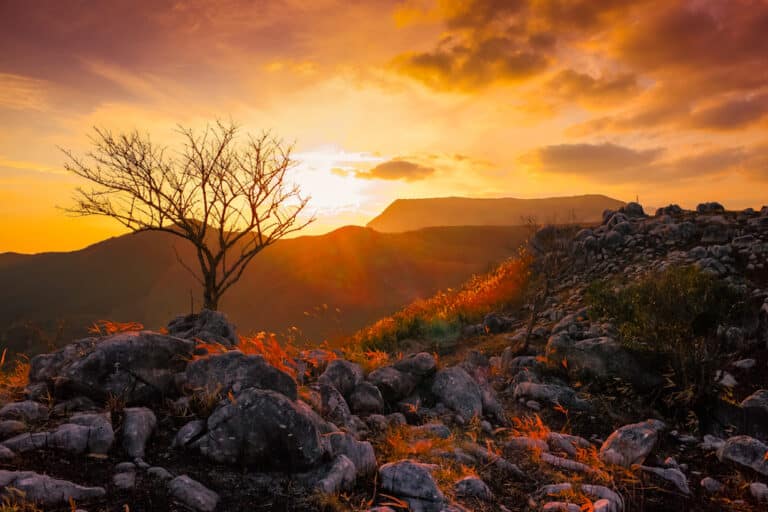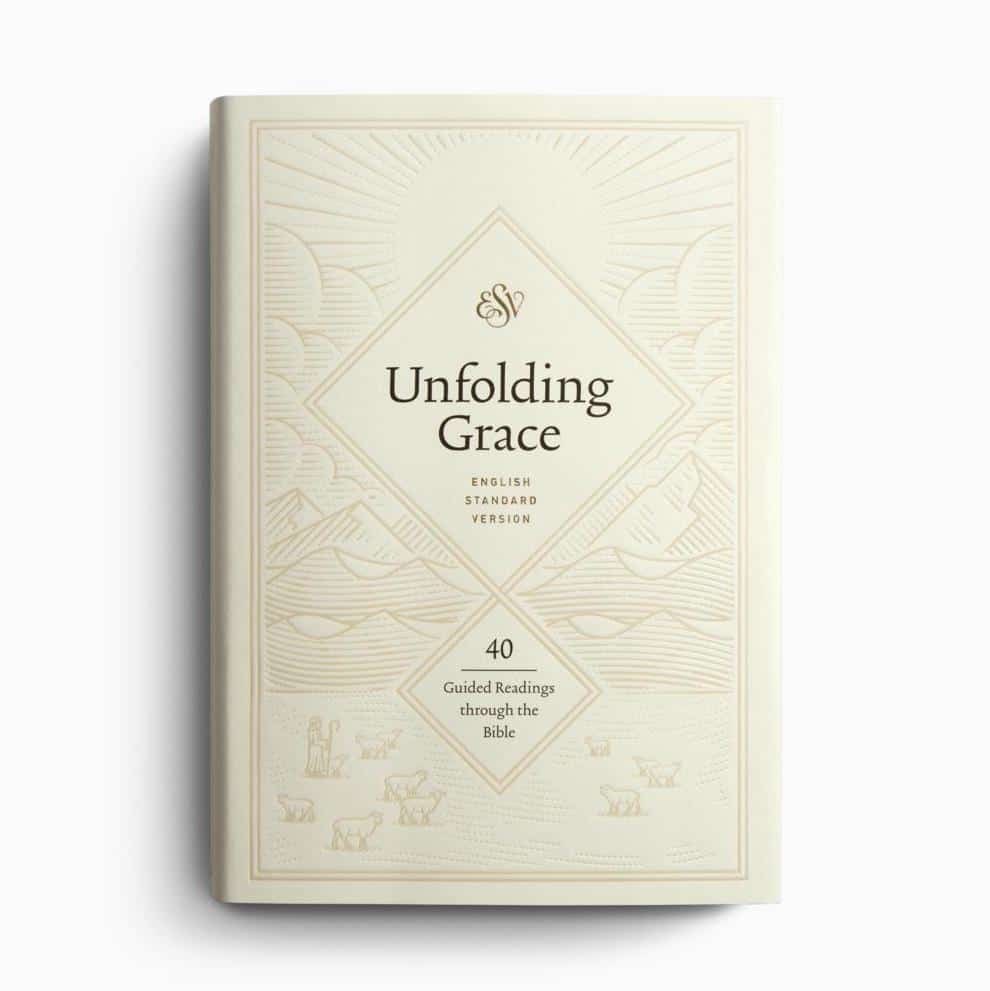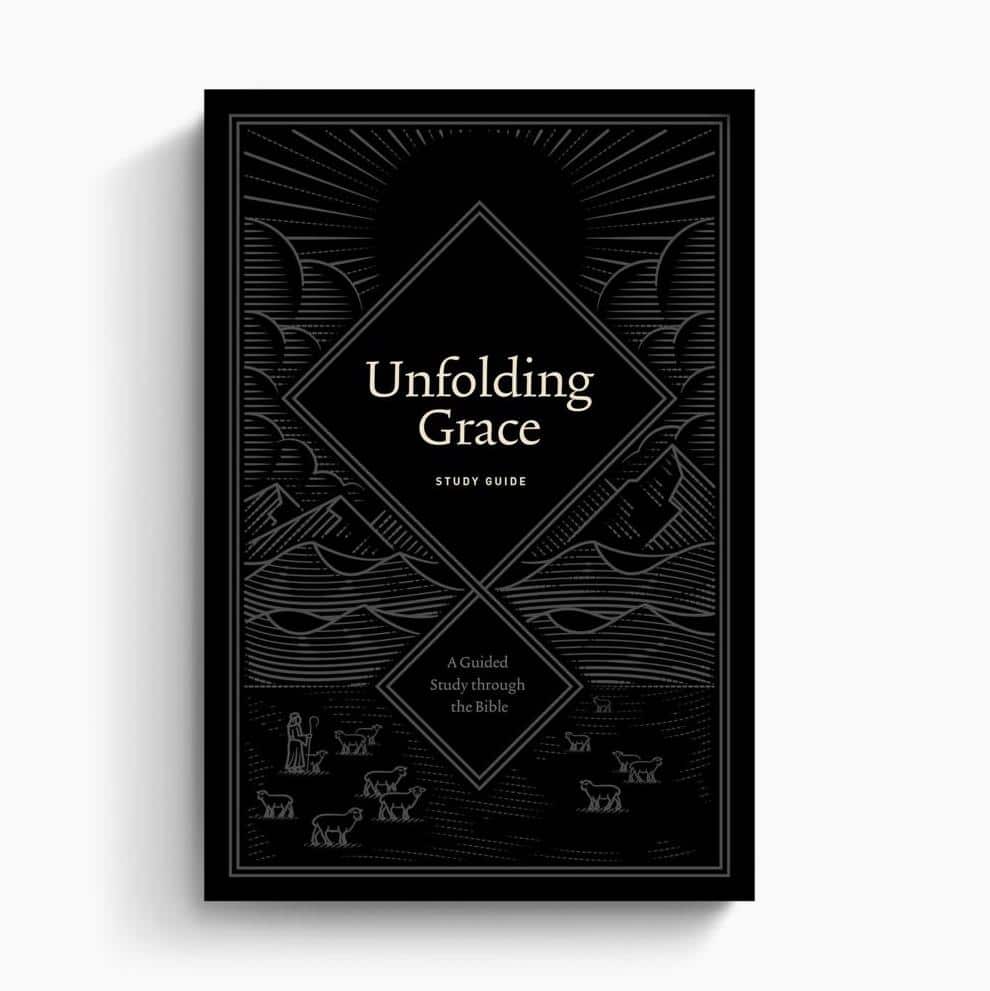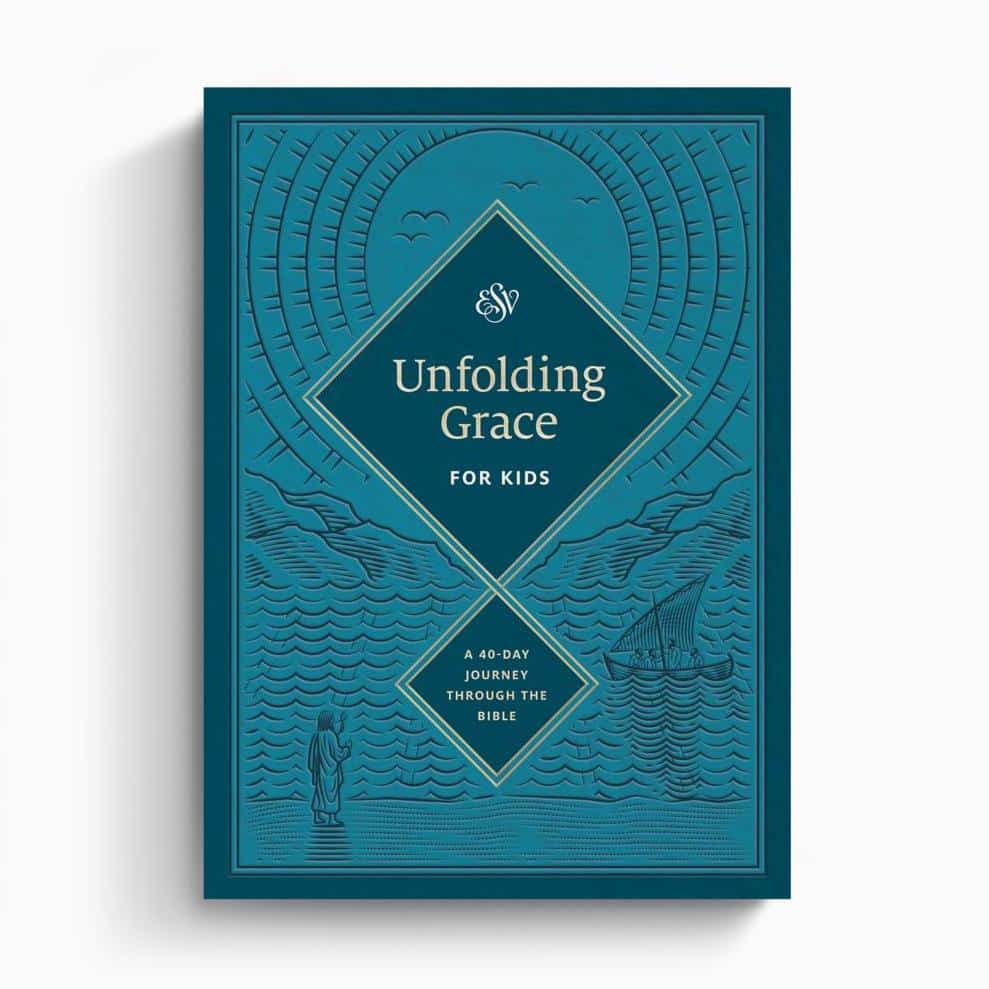LESSON SEVEN
Israel’s Oppression and Moses’ Call
Genesis introduced the first key movements in Scripture’s story: the creation of God’s good world, the fall of humanity into sin, and God’s promise to send a conquering savior to restore his blessing to the world. God advanced this promise with his covenant to Abraham: God would make him a nation, he would give them the land of Canaan, and they would be blessed in order to be a blessing to all nations. Worldwide blessing would come through Abraham’s line—the people of Israel.
But Egypt’s king enslaved and oppressed Israel. Weighed down with heavy burdens, God’s people cried out to the Lord. How would he fulfill his promises? How would he show himself to be the faithful God who is with and for his people?
As God works to deliver Israel from slavery in Egypt, he is providing a picture of how he will one day rescue people from the deepest of problems—the power of Satan, the grip of sin, and the punishment of death.
As we find the answers to these questions in the exodus story, we learn that what God does for Israel sets a pattern for a greater rescue to come. As God works to deliver Israel from slavery in Egypt, he is providing a picture of how he will one day rescue people from the deepest of problems—the power of Satan, the grip of sin, and the punishment of death.
SCRIPTURE READING
Exodus 1-3
Reading Time: 9 Minutes
These are the names of the sons of Israel who came to Egypt with Jacob, each with his household: Reuben, Simeon, Levi, and Judah, Issachar, Zebulun, and Benjamin, Dan and Naphtali, Gad and Asher. All the descendants of Jacob were seventy persons; Joseph was already in Egypt. Then Joseph died, and all his brothers and all that generation. But the people of Israel were fruitful and increased greatly; they multiplied and grew exceedingly strong, so that the land was filled with them.
Now there arose a new king over Egypt, who did not know Joseph. And he said to his people, “Behold, the people of Israel are too many and too mighty for us. Come, let us deal shrewdly with them, lest they multiply, and, if war breaks out, they join our enemies and fight against us and escape from the land.” Therefore they set taskmasters over them to afflict them with heavy burdens. They built for Pharaoh store cities, Pithom and Raamses. But the more they were oppressed, the more they multiplied and the more they spread abroad. And the Egyptians were in dread of the people of Israel. So they ruthlessly made the people of Israel work as slaves and made their lives bitter with hard service, in mortar and brick, and in all kinds of work in the field. In all their work they ruthlessly made them work as slaves.
Then the king of Egypt said to the Hebrew midwives, one of whom was named Shiphrah and the other Puah, “When you serve as midwife to the Hebrew women and see them on the birthstool, if it is a son, you shall kill him, but if it is a daughter, she shall live.” But the midwives feared God and did not do as the king of Egypt commanded them, but let the male children live. So the king of Egypt called the midwives and said to them, “Why have you done this, and let the male children live?” The midwives said to Pharaoh, “Because the Hebrew women are not like the Egyptian women, for they are vigorous and give birth before the midwife comes to them.” So God dealt well with the midwives. And the people multiplied and grew very strong. And because the midwives feared God, he gave them families. Then Pharaoh commanded all his people, “Every son that is born to the Hebrews you shall cast into the Nile, but you shall let every daughter live.”
Now a man from the house of Levi went and took as his wife a Levite woman. The woman conceived and bore a son, and when she saw that he was a fine child, she hid him three months. When she could hide him no longer, she took for him a basket made of bulrushes and daubed it with bitumen and pitch. She put the child in it and placed it among the reeds by the river bank. And his sister stood at a distance to know what would be done to him. Now the daughter of Pharaoh came down to bathe at the river, while her young women walked beside the river. She saw the basket among the reeds and sent her servant woman, and she took it. When she opened it, she saw the child, and behold, the baby was crying. She took pity on him and said, “This is one of the Hebrews’ children.” Then his sister said to Pharaoh’s daughter, “Shall I go and call you a nurse from the Hebrew women to nurse the child for you?” And Pharaoh’s daughter said to her, “Go.” So the girl went and called the child’s mother. And Pharaoh’s daughter said to her, “Take this child away and nurse him for me, and I will give you your wages.” So the woman took the child and nursed him. When the child grew older, she brought him to Pharaoh’s daughter, and he became her son. She named him Moses, “Because,” she said, “I drew him out of the water.”
One day, when Moses had grown up, he went out to his people and looked on their burdens, and he saw an Egyptian beating a Hebrew, one of his people. He looked this way and that, and seeing no one, he struck down the Egyptian and hid him in the sand. When he went out the next day, behold, two Hebrews were struggling together. And he said to the man in the wrong, “Why do you strike your companion?” He answered, “Who made you a prince and a judge over us? Do you mean to kill me as you killed the Egyptian?” Then Moses was afraid, and thought, “Surely the thing is known.” When Pharaoh heard of it, he sought to kill Moses. But Moses fled from Pharaoh and stayed in the land of Midian. And he sat down by a well.
Now the priest of Midian had seven daughters, and they came and drew water and filled the troughs to water their father’s flock. The shepherds came and drove them away, but Moses stood up and saved them, and watered their flock. When they came home to their father Reuel, he said, “How is it that you have come home so soon today?” They said, “An Egyptian delivered us out of the hand of the shepherds and even drew water for us and watered the flock.” He said to his daughters, “Then where is he? Why have you left the man? Call him, that he may eat bread.” And Moses was content to dwell with the man, and he gave Moses his daughter Zipporah. She gave birth to a son, and he called his name Gershom, for he said, “I have been a sojourner in a foreign land.”
During those many days the king of Egypt died, and the people of Israel groaned because of their slavery and cried out for help. Their cry for rescue from slavery came up to God. And God heard their groaning, and God remembered his covenant with Abraham, with Isaac, and with Jacob. God saw the people of Israel—and God knew.
Now Moses was keeping the flock of his father-in-law, Jethro, the priest of Midian, and he led his flock to the west side of the wilderness and came to Horeb, the mountain of God. And the angel of the Lord appeared to him in a flame of fire out of the midst of a bush. He looked, and behold, the bush was burning, yet it was not consumed. And Moses said, “I will turn aside to see this great sight, why the bush is not burned.” When the Lord saw that he turned aside to see, God called to him out of the bush, “Moses, Moses!” And he said, “Here I am.” Then he said, “Do not come near; take your sandals off your feet, for the place on which you are standing is holy ground.” And he said, “I am the God of your father, the God of Abraham, the God of Isaac, and the God of Jacob.” And Moses hid his face, for he was afraid to look at God.
Then the Lord said, “I have surely seen the affliction of my people who are in Egypt and have heard their cry because of their taskmasters. I know their sufferings, and I have come down to deliver them out of the hand of the Egyptians and to bring them up out of that land to a good and broad land, a land flowing with milk and honey, to the place of the Canaanites, the Hittites, the Amorites, the Perizzites, the Hivites, and the Jebusites. And now, behold, the cry of the people of Israel has come to me, and I have also seen the oppression with which the Egyptians oppress them. Come, I will send you to Pharaoh that you may bring my people, the children of Israel, out of Egypt.” But Moses said to God, “Who am I that I should go to Pharaoh and bring the children of Israel out of Egypt?” He said, “But I will be with you, and this shall be the sign for you, that I have sent you: when you have brought the people out of Egypt, you shall serve God on this mountain.”
Then Moses said to God, “If I come to the people of Israel and say to them, ‘The God of your fathers has sent me to you,’ and they ask me, ‘What is his name?’ what shall I say to them?” God said to Moses, “I Am who I Am.” And he said, “Say this to the people of Israel: ‘I Am has sent me to you.’ ” God also said to Moses, “Say this to the people of Israel: ‘The Lord, the God of your fathers, the God of Abraham, the God of Isaac, and the God of Jacob, has sent me to you.’ This is my name forever, and thus I am to be remembered throughout all generations. Go and gather the elders of Israel together and say to them, ‘The Lord, the God of your fathers, the God of Abraham, of Isaac, and of Jacob, has appeared to me, saying, “I have observed you and what has been done to you in Egypt, and I promise that I will bring you up out of the affliction of Egypt to the land of the Canaanites, the Hittites, the Amorites, the Perizzites, the Hivites, and the Jebusites, a land flowing with milk and honey.” ’ And they will listen to your voice, and you and the elders of Israel shall go to the king of Egypt and say to him, ‘The Lord, the God of the Hebrews, has met with us; and now, please let us go a three days’ journey into the wilderness, that we may sacrifice to the Lord our God.’ But I know that the king of Egypt will not let you go unless compelled by a mighty hand. So I will stretch out my hand and strike Egypt with all the wonders that I will do in it; after that he will let you go. And I will give this people favor in the sight of the Egyptians; and when you go, you shall not go empty, but each woman shall ask of her neighbor, and any woman who lives in her house, for silver and gold jewelry, and for clothing. You shall put them on your sons and on your daughters. So you shall plunder the Egyptians.”
EXODUS 1-3
Study Guide Questions
- What does God’s rescue of Israel teach us about his heart and character?
- How does God’s rescue of Israel relate to his promises to Abraham in Genesis? What does this teach us about the motivations of God’s heart to rescue his people through Jesus?
EXODUS 2:23–3:22
Family Discussion Questions
- How does this story show us God’s heart of compassion and care?
- What was the name that God gave for Moses to call him?
- Why do you think Moses didn’t want to go back to Egypt?
- What did God say he would do to Egypt so they would let Israel go?
PART TWO REVIEW
God’s People Redeemed
God multiplies the Israelites while they are in Egypt. Yet, while the people of Israel grow in number, they also cry out because of their slavery to the Egyptians. God chooses to deliver them by raising up Moses as their leader. After a series of judgments on Egypt, God leads his people out from Egypt through the Red Sea. He then brings them to the foot of Mount Sinai in order to enter into a covenant relationship with them. Israel is to become a new humanity, a kingdom of priests restored to God and reflecting his character in the world. God also causes his presence to dwell with his people in the tabernacle. He brings them out of slavery in order to bring them near to him; he delivers them in order to dwell with them.
From Sinai, God will lead his people to their new home, the land of Canaan. However, Israel continually distrusts and disobeys the Lord. Because of this, God causes them to wander in the wilderness for forty years until this first generation passes away. The next generation will be another fresh start, and God leads them into the land through Joshua, their new Moses-like leader.
LESSON SEVEN
Israel’s Oppression and Moses’ Call
Genesis showed us the beginning of the Bible’s story. We learned how God made the world good, how people’s sin damaged it, and how God promised to send a Savior to restore his blessing. Then God advanced this promise with his covenant to Abraham: God promised to make Abraham a nation (Israel), to give that nation the land of Canaan, and to bless that nation so that it would be a blessing to all nations. It would be through Israel that God’s Savior and blessing would come.
But Egypt’s king eventually turned the Israelites into slaves. This makes us wonder: How would God fulfill these promises? We find the answer in the exodus story. We learn that as God worked to deliver Israel from slavery in Egypt, he was providing a picture of how he would one day send Jesus to rescue us from the deepest problems—the power of Satan, the grip of sin, and the punishment of death.
SCRIPTURE READING
Exodus 2:23-3:22
Reading Time: 4 Minutes
During those many days the king of Egypt died, and the people of Israel groaned because of their slavery and cried out for help. Their cry for rescue from slavery came up to God. And God heard their groaning, and God remembered his covenant with Abraham, with Isaac, and with Jacob. God saw the people of Israel—and God knew.
Now Moses was keeping the flock of his father-in-law, Jethro, the priest of Midian, and he led his flock to the west side of the wilderness and came to Horeb, the mountain of God. And the angel of the Lord appeared to him in a flame of fire out of the midst of a bush. He looked, and behold, the bush was burning, yet it was not consumed. And Moses said, “I will turn aside to see this great sight, why the bush is not burned.” When the Lord saw that he turned aside to see, God called to him out of the bush, “Moses, Moses!” And he said, “Here I am.” Then he said, “Do not come near; take your sandals off your feet, for the place on which you are standing is holy ground.” And he said, “I am the God of your father, the God of Abraham, the God of Isaac, and the God of Jacob.” And Moses hid his face, for he was afraid to look at God.
Then the Lord said, “I have surely seen the affliction of my people who are in Egypt and have heard their cry because of their taskmasters. I know their sufferings, and I have come down to deliver them out of the hand of the Egyptians and to bring them up out of that land to a good and broad land, a land flowing with milk and honey, to the place of the Canaanites, the Hittites, the Amorites, the Perizzites, the Hivites, and the Jebusites. And now, behold, the cry of the people of Israel has come to me, and I have also seen the oppression with which the Egyptians oppress them. Come, I will send you to Pharaoh that you may bring my people, the children of Israel, out of Egypt.” But Moses said to God, “Who am I that I should go to Pharaoh and bring the children of Israel out of Egypt?” He said, “But I will be with you, and this shall be the sign for you, that I have sent you: when you have brought the people out of Egypt, you shall serve God on this mountain.”
Then Moses said to God, “If I come to the people of Israel and say to them, ‘The God of your fathers has sent me to you,’ and they ask me, ‘What is his name?’ what shall I say to them?” God said to Moses, “I am who I am.” And he said, “Say this to the people of Israel: ‘I am has sent me to you.’ ” God also said to Moses, “Say this to the people of Israel: ‘The Lord, the God of your fathers, the God of Abraham, the God of Isaac, and the God of Jacob, has sent me to you.’ This is my name forever, and thus I am to be remembered throughout all generations. Go and gather the elders of Israel together and say to them, ‘The Lord, the God of your fathers, the God of Abraham, of Isaac, and of Jacob, has appeared to me, saying, “I have observed you and what has been done to you in Egypt, and I promise that I will bring you up out of the affliction of Egypt to the land of the Canaanites, the Hittites, the Amorites, the Perizzites, the Hivites, and the Jebusites, a land flowing with milk and honey.” ’ And they will listen to your voice, and you and the elders of Israel shall go to the king of Egypt and say to him, ‘The Lord, the God of the Hebrews, has met with us; and now, please let us go a three days’ journey into the wilderness, that we may sacrifice to the Lord our God.’ But I know that the king of Egypt will not let you go unless compelled by a mighty hand. So I will stretch out my hand and strike Egypt with all the wonders that I will do in it; after that he will let you go. And I will give this people favor in the sight of the Egyptians; and when you go, you shall not go empty, but each woman shall ask of her neighbor, and any woman who lives in her house, for silver and gold jewelry, and for clothing. You shall put them on your sons and on your daughters. So you shall plunder the Egyptians.”
SERMON SERIES
Finding Our Purpose in God’s Plan
These six messages belong to the Unfolding Grace: Finding Our Purpose in God’s Plan sermon series that author and pastor Drew Hunter preached at his home church. Through these six messages, he tells us the story of the Bible—a story that reveals the grace of God.
BUY THE BOOK
Book Series
The content you enjoy in this Unfolding Grace Reading Plan comes from the Unfolding Grace book series by Pastor Drew Hunter, published by Crossway Publishers. We encourage you to purchase a physical copy of Unfolding Grace to use individually, with your family, or as a small group.








